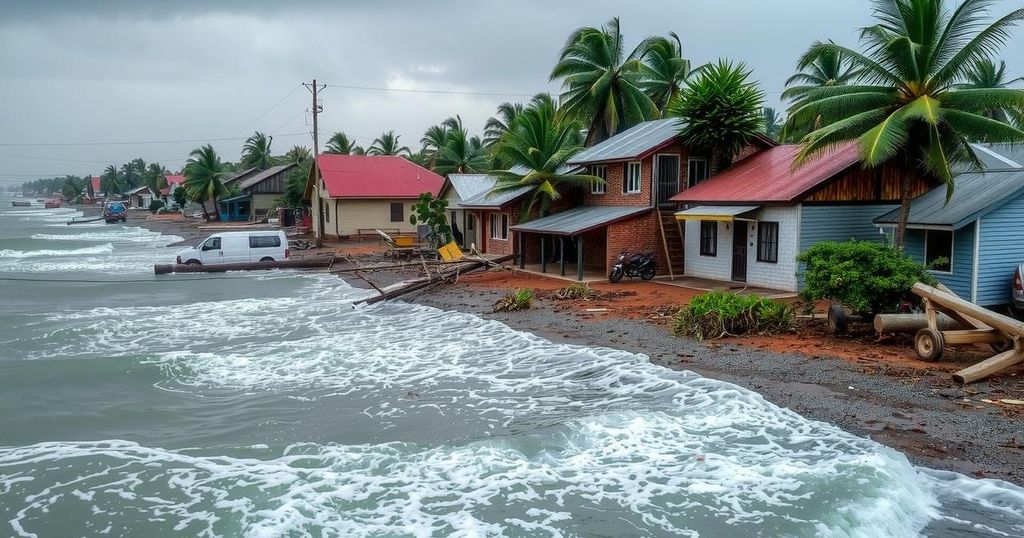Cyclone Chido’s Death Toll Climbs to 75 in Mozambique Amid Humanitarian Crisis

The death toll from Cyclone Chido in Mozambique has risen to 75, nearly doubling previous estimates due to rescue operations in inaccessible areas. The cyclone, affecting Cabo Delgado amid ongoing conflict, has devastated communities, leading to extensive destruction and injuries. The storm’s impacts have raised urgent humanitarian needs as Mozambique grapples with climate challenges compounded by conflict.
The death toll from Cyclone Chido in Mozambique has tragically increased to 75, nearly doubling the initial count as rescue workers have been able to access isolated locations severely impacted by the storm. Upon making landfall in Cabo Delgado, a region already grappling with a prolonged insurgency, the cyclone resulted in 69 deaths and approximately 740 injuries, according to Mozambique’s National Institute for Natural Disasters. Reports indicate that in Mecufi district, the destruction is widespread, leaving many buildings obliterated.
Isadora Zoni, a reporting officer for the United Nations’ refugee agency, remarked, “What you see is utter destruction,” after assessing the situation in affected areas. The cyclone’s impact has compounded the hardships faced by residents already displaced by conflict, as many had already fled their homes due to ongoing insurgent attacks. The storm brought destructive winds reaching speeds of 115 miles per hour, impacting regions heavily accustomed to such climatic challenges.
In addition to Mozambique, Cyclone Chido caused devastation in Mayotte, a French territory, leading to at least 31 deaths, although more casualties are feared. The storm highlights the increasing extreme weather patterns attributed to climate change, as Mozambique remains a vulnerable nation routinely affected by devastating storms.
The U.N. refugee agency has cautioned that Cyclone Chido may foreshadow a particularly harsh rainy season, historically known for severe cyclones and flooding in Southern Africa. Past cyclones have also taken their toll, with Tropical Cyclone Freddy and Cyclone Gombe causing significant loss of life and displacement within Mozambique.
As responders continue to assess the damages, the humanitarian needs are urgent, underscoring the complexities faced by Mozambique amid its ongoing struggles with climate-induced disasters and prolonged conflict.
Cyclone Chido has emerged as a significant contributor to the ongoing humanitarian crisis in Mozambique, a nation already destabilized by an extended conflict linked to insurgent activities. The situation is exacerbated by the geographic and climatic vulnerabilities of Mozambique, making it one of the countries most adversely affected by climate change and extreme weather events in recent years. The disaster response has been challenged by prior displacement of local populations due to violence, making recovery and assistance efforts complex and urgent. Overall, this cyclone is alarming within the context of a trend of increasing severity and frequency of storms in the region, raising concerns for the future.
Cyclone Chido’s destructive force highlights the severe challenges Mozambique faces, both from natural disasters and ongoing conflict. With a rising death toll, widespread destruction, and thousands displaced, the need for humanitarian assistance is urgent. This disaster not only causes immediate fatalities and injuries but also compounds the struggles of a population already enduring the hardships of conflict and climate change. Continued vigilance and response efforts will be essential in addressing the fallout from this and future natural disasters.
Original Source: www.nytimes.com








